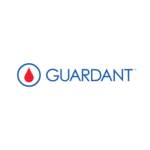Survey finds only 18% of respondents who discontinued GLP-1s achieved their weight loss goals; respondents want to lose an average of 22% more weight
Omada Health Publishes Findings from Consumer Survey of GLP-1 Users, Revealing Majority Discontinue the Drug Before Reaching Their Goal Weight
Rose Ramseth
press@omadahealth.com
Omada Health, the virtual between-visit healthcare provider, today released findings from an attitudinal survey of 1,000 non-Omada members to better understand the needs of consumers taking GLP-1 medications for weight loss. The survey focused on the impact of GLP-1s throughout the patient journey, assessing individuals' feelings and experiences before, during, and after taking the popular weight loss medications.
The survey of 1,000 participants between the ages of 21-75, found that more than three-quarters (78%) of consumers discussed lifestyle changes before receiving or when receiving a GLP-1 prescription by their prescriber. The data also indicate there is often a strong emotional component, 82% of survey respondents said their weight impacted their emotional health prior to taking a GLP-1 and 62% said their decision to take a GLP-1 gave them hope. Moreover, 65% of those discontinuing the medication reported feelings of anxiousness, stress, and/or depression, and of these respondents, over three-fourths regained weight.
Key results indicate access and cost challenges impacted medication persistence and a need for accompanying behavior change support:
- Seventy-three percent of first prescribers were the individuals’ primary care providers (60%), physician assistants (7%), or nurse practitioners (6%).
- Over 60% had a delay or challenge when refilling their GLP-1 prescription which most often led to finding a different pharmacy, skipping or reducing medication, or switching brands.
- Thirty-five percent discontinued taking a GLP-1 because of out-of-pocket costs, and only 18% discontinued their GLP-1 because they achieved their weight loss goal.
- Sixty-six percent regained a portion of their weight, 23% maintained their weight loss, and only 11% continued to lose weight after discontinuing taking a GLP-1.
“This survey is critical to unpacking the complexity and ambiguity of the GLP-1 patient journey, while further emphasizing the need for support beyond prescribed weight loss medications,” said Omada Health’s Chief Medical Officer Carolyn Bradner Jasik, MD. “While the findings were not shocking, we are hopeful that it will provide additional support for recognition that GLP-1s alone are not sufficient in producing sustained weight health outcomes, unless paired with a behavior change program element.”
The above findings from the attitudinal survey are also consistent with the conclusions drawn from Omada’s other new study, “GLP-1 Discontinuation: Real World Perspectives on a Complex Journey,” which examined real-world data from Omada’s programs and took a deep dive into the needs and experiences of Omada members with a history of GLP-1 use. The findings were presented at ObesityWeek 2024 (November 3-6). Seventy-five percent of the Omada members in this study reported discontinuing GLP-1s due to access issues, and 87% of that group expressed a desire to continue losing weight despite stopping the medication. The findings once again revealed that the majority of members discontinued GLP-1s due to access barriers, rather than achieving their goal weight.
GLP-1s have become a highly demanded treatment for weight loss, particularly as high BMI levels and obesity remain prevalent in the U.S. population. Recent data indicate that 42% of Americans are living with obesity. Omada’s efforts to gain real-world insights about the GLP-1 patient journey come from the company’s ANSWERS (ANalyzing Success of WEight medication with Real-world evidence and Stats) Initiative, launched earlier this year to evaluate factors associated with medication usage and the relationship between lifestyle program participation on long-term outcomes of weight health, with and without GLP-1 use, at a population level.
Omada remains committed to staying at the forefront of GLP-1 research by gaining an in-depth understanding of the effects of lifestyle programs on individuals taking GLP-1s at each stage of the patient journey. As the broader implications for GLP-1s and chronic disease management continue to evolve, Omada will look to new clinical research and patient learnings to inform its programs, to enhance its product capabilities, and to support its members on GLP-1 medications. Learn more about Omada Health’s approach to GLP-1 medications and coverage here.
Omada Health
Omada Health is a virtual-first healthcare provider that nurtures lifelong health, one day at a time. Omada care teams implement clinically validated behavior change protocols for individuals living with diabetes, hypertension, prediabetes, weight management and musculoskeletal issues. With more than a decade of experience and data and 29 peer-reviewed publications that showcase its clinical and economic results, Omada is designed to help improve health outcomes and contain healthcare costs. Omada’s scope exceeds 2,000 customers, including health plans, health systems, and employers ranging in size from small businesses to Fortune 500s.
The foundation of Omada’s success is a strong, vibrant work culture, which helped earn the company the distinction of becoming an officially certified Great Place to Work. An industry leader, Omada was the first virtual provider to join the Institute for Healthcare Improvement’s Leadership Alliance, reflecting the aim to complement primary care providers for the benefit of members, and affirming its guarantee to every partner: Omada works differently.
View source version on businesswire.com: https://www.businesswire.com/news/home/20241104507146/en/

 Business wire
Business wire 












Add Comment